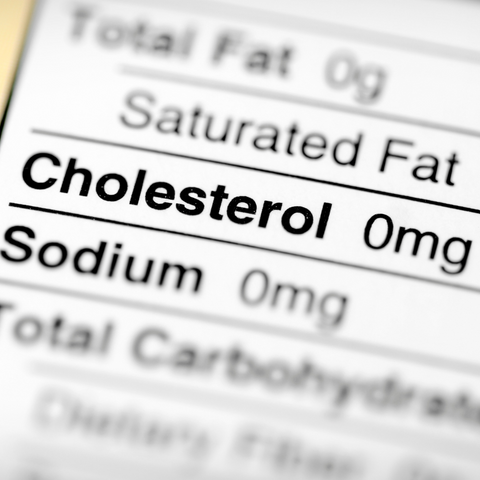What is Cholesterol and Why Should You Care?

You've probably heard the term "cholesterol" tossed around in your doctor's office or during health-related conversations. But do you really know what cholesterol is and why it's vital to your health? Let's delve into understanding cholesterol, the types, how it affects our bodies, and how to manage cholesterol levels effectively.
Breaking Down Cholesterol – What Is It, Really?

Cholesterol, often misunderstood, is a crucial fat or lipid that our bodies need to function properly. Synthesized in our liver, cholesterol serves multiple essential roles. It participates in the creation of our cell membranes, giving them both structure and flexibility. It is also instrumental in the synthesis of vitamin D, an essential nutrient that aids in the absorption of calcium and health of our immune system. Additionally, cholesterol is a building block for certain hormones, including cortisol, testosterone, and estrogen, thus playing a vital role in our stress response, sexual function, and more.
While our body is capable of generating the required amount of cholesterol, some of it is also derived from our diet. It's important to note that not all cholesterol is the same and understanding the different types, their functions, and their impact on our health is key. It's this knowledge that empowers us to make healthier choices and manage our cholesterol levels effectively. In the next sections, we will explore the types of cholesterol, their implications for our health, and strategies for managing our cholesterol levels.
What Are the Different Types of Cholesterol?

When it comes to cholesterol, it is not a one-size-fits-all scenario. There are two main varieties: low-density lipoprotein (LDL) and high-density lipoprotein (HDL). Each of these types plays a distinct role in our bodies, and their balance is crucial for our health. The LDL cholesterol, colloquially termed as the "bad" cholesterol, may contribute to the formation of plaque in the arteries when its levels in the body surge too high. This build-up can raise the likelihood of heart disease and stroke. Conversely, HDL cholesterol is dubbed the "good" cholesterol for a good reason. You can remember this by noting that HDL starts with an “H” and it is the “healthy” cholesterol, which also starts with an “H.” Its primary function is to carry the LDL cholesterol away from the arteries, directing it towards the liver. Here, the LDL cholesterol is broken down and eventually excreted from the body. Therefore, a healthy cholesterol profile would ideally have low levels of LDL and high levels of HDL. However, understanding these different types of cholesterol is just part of the equation. Recognizing the factors that influence these levels and knowing how to manage them effectively is equally critical to maintaining good heart health.
Understanding Your Cholesterol Levels

Understanding your cholesterol levels can be a crucial step towards maintaining heart health. One of the challenging aspects of cholesterol is that high cholesterol usually does not have any symptoms, so many people are unaware that their cholesterol is too high until a serious problem occurs. This is why it's recommended by the American Heart Association for all adults 20 years and older to get a cholesterol check at least once every four to six years. While test results can vary by health history, gender, stress, certain medication use, and age, there are general guidelines for what is considered healthy in adults.
Total cholesterol levels are divided into three categories based on the number of milligrams per deciliter (mg/dL) of blood. If your levels are below 200 mg/dL, this is considered desirable and healthy. If your total cholesterol levels fall between 200 and 239 mg/dL, this is viewed as borderline high, and anything over 240 mg/dL is classified as high.
It's also essential to pay attention to your individual LDL and HDL levels. Ideally, LDL levels should be less than 100 mg/dL, and HDL should be 60 mg/dL or higher for optimal heart protection. Familiarizing yourself with these numbers can help you better understand your cholesterol profile and take appropriate actions if needed.
Total Cholesterol Levels
- Normal <200 mg/dL
- Borderline High 200-239 mg/dL
- High 240+ mg/dL
What Raises Your Cholesterol Levels?

Several elements can contribute to an uptick in your cholesterol levels. These factors can be both controllable and uncontrollable. For instance, a diet that consists largely of foods with high saturated and trans fats can result in an increase in your LDL cholesterol. This includes foods such as fatty red meat, full-fat dairy products, and fried foods. Moreover, a sedentary lifestyle without regular exercise can also lead to heightened cholesterol levels. Other lifestyle choices, such as smoking, can interfere with the efficiency of your HDL cholesterol in ferrying LDL cholesterol back to the liver. This inefficiency can cause an excess accumulation of LDL cholesterol in your bloodstream.
Apart from these lifestyle choices, obesity is another controllable risk factor for high cholesterol. It's worth noting that your weight doesn't only influence your cholesterol levels but is also closely linked with other health risks such as diabetes and high blood pressure.
Beyond these controllable factors, genetics can significantly influence your cholesterol levels. Some people inherit genes from their parents that cause them to have naturally high levels of LDL cholesterol. This condition, known as familial hypercholesterolemia, often requires medical treatment as lifestyle changes alone may not suffice in lowering cholesterol levels.
How Can You Lower Your Cholesterol Levels?

Taking steps to reduce cholesterol levels often begins with making adjustments to your lifestyle. Opt for a diet that is conducive to heart health, low in saturated and trans fats. This can be achieved by limiting the intake of fatty red meat, full-fat dairy products, and fried foods and increasing the consumption of fruits, vegetables, whole grains, and lean proteins. Dietary modifications can also include increasing your intake of dietary fiber, found in fruits, vegetables, and whole grains, and omega-3 fatty acids, which are present in foods like fatty fish, walnuts, and flaxseeds. These changes can boost your HDL cholesterol, the "good" cholesterol.
Regular physical activity, such as brisk walking, swimming, or biking for at least 30 minutes most days of the week can help manage weight and lower cholesterol levels. If you are new to exercise and looking for ways to help you get started then check out our “Beginner’s Guide to Exercise” blog with sample workout programs.
Additionally, if you're a smoker, quitting can dramatically improve your HDL cholesterol level.
Incorporating these changes into your lifestyle can contribute to not only lowering your LDL cholesterol but also raising your HDL cholesterol levels, thereby striking a healthy balance. These changes, while may appear simple, can have a profound impact on your cholesterol levels and overall heart health.
When Medication Might Be Necessary

While proactive steps such as adhering to a heart-healthy diet and an active lifestyle are vital, in certain circumstances, they may not suffice to lower cholesterol levels. If your cholesterol continues to remain high despite diligent lifestyle modifications, or if you have additional heart disease risk factors, your healthcare provider may suggest medicinal intervention. This can encompass a variety of cholesterol-lowering medications such as statins, which reduce the production of cholesterol in your liver, bile-acid-binding resins that work by binding to bile acids and reducing cholesterol, or cholesterol absorption inhibitors, which limit the absorption of dietary cholesterol. It's crucial to note that these medications are designed to complement a heart-healthy lifestyle, rather than replace it. Regular exercise and a balanced diet are still key elements to maintain alongside any medication regime. Medical treatment is often an effective way to manage cholesterol levels, but it should always be pursued under the guidance and monitoring of your healthcare provider. Therefore, maintaining open communication with your doctor about your progress, concerns, and any potential side effects is essential to ensure the most effective treatment plan for your unique health needs.
Understanding Cholesterol
Doctors’ visits are full of lab tests, reference ranges, and a seemly endless barrage of numbers. Comprehending these numbers is an important part of understanding the current state of our health and what we can do to help us live longer, happier lives. By routinely checking your cholesterol levels and interpreting what those numbers signify, you can implement necessary modifications to your habits or medicinal regime, ultimately decreasing your risk of cardiovascular diseases. Consider that knowledge is your most potent tool in this journey. With a deeper understanding of cholesterol, you're not just improving your well-being but also setting a foundation for a longer, healthier life. This awareness of cholesterol and its intricacies can drive you to make informed choices about your diet, physical activity, and other lifestyle aspects, allowing you to effectively manage your cholesterol levels and foster a heart-healthy life. It's not about fearing cholesterol, but rather recognizing its importance, keeping it in check, and making it work to your advantage.
Author: Dr. Colleen Gulick




